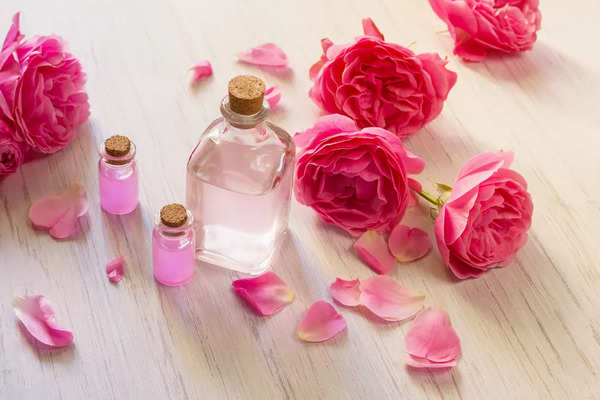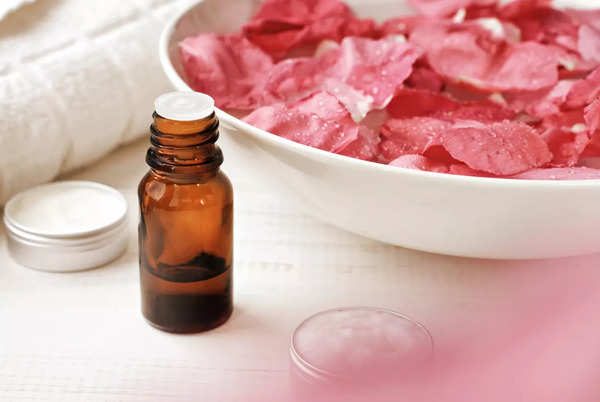Read Also
Ever tried exfoliating gloves? Well, With regular exfoliation and proper skincare, you can maintain a radiant, sun-kissed glow year-round.
Blackheads, medically known as open comedones, are a type of acne lesion. They appear as small, dark or black bumps on the skin, often on the face, but can also occur on the chest, back, neck, shoulders, and arms. Here are some ways to remove them.
Spiritual tattoos in Hinduism are deeply symbolic and meaningful. They often represent devotion, protection, spirituality, and the connection between the physical and spiritual realms. Here are some popular Hindu symbols and motifs that are commonly used for spiritual tattoos.
Here are some substances you should not mix with rose water:
Alcohol-based Toners:
Mixing rose water with toners that contain alcohol can be harsh and drying on the skin. This combination may lead to irritation, redness, and over-drying.

Strong Acids (e.g., Glycolic or Salicylic Acid):
Combining rose water with potent acids can disrupt the skin’s natural pH balance. This may result in irritation, peeling, and increased sensitivity. It’s best to use these ingredients separately and with caution.
Hydrogen Peroxide:
Rose water should not be mixed with hydrogen peroxide. This combination can lead to a chemical reaction that may cause skin irritation and discomfort.
Essential Oils in High Concentrations:
While some essential oils can be beneficial for the skin, using them in high concentrations with rose water can potentially cause irritation or allergic reactions. It’s important to dilute essential oils properly before adding them to rose water.
Bleaching Agents:
Mixing rose water with potent bleaching agents or chemical skin lighteners can lead to uneven skin tone, irritation, and even skin damage. It’s best to avoid such combinations.
Navratri Special: Morning Skincare Routine Ft. Dr Madhuri Agarwal
Strong Astringents:
Combining rose water with strong astringents, especially those containing harsh chemicals, can lead to over-drying and irritation. This may strip the skin of its natural oils and disrupt its protective barrier.
Products Containing Synthetic Fragrances:
Some synthetic fragrances can contain chemicals that may not interact well with the natural components of rose water. This can lead to skin irritation or allergic reactions.
Harsh Exfoliating Agents:
Mixing rose water with abrasive exfoliants, especially those with rough granules, can be too harsh on the skin. This may lead to micro-tears and increased sensitivity.

Strong Chemical Peels:
Using rose water immediately after a strong chemical peel may not be advisable. The skin may be too sensitive, and combining it with rose water might cause discomfort or irritation.
Unknown or Unfamiliar Substances:
It’s crucial to be cautious when combining rose water with products whose ingredients or compatibility with rose water are unknown. Unfamiliar substances may lead to unexpected reactions or sensitivities.
